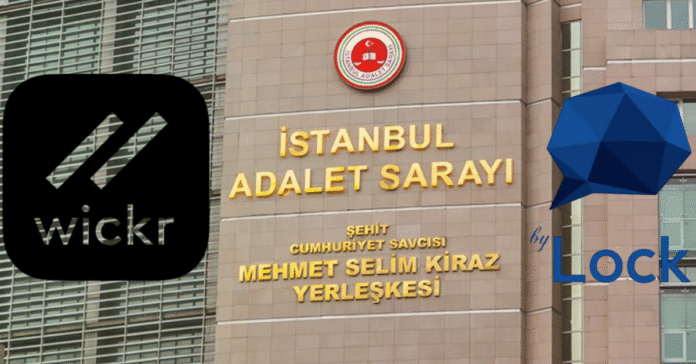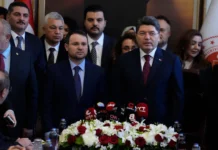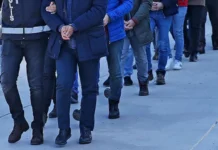A Turkish prosecutor has cited jailed İstanbul Mayor Ekrem İmamoğlu’s alleged use of the encrypted messaging app Wickr Me as critical evidence in a politically charged espionage case, likening it to ByLock, a controversial app that Turkish authorities treated as criminal evidence in a crackdown on the Gülen movement, the Velev news website reported.
The İstanbul Chief Public Prosecutor’s Office described the secure messaging app Wickr Me as “like ByLock” and labeled it “indisputable evidence” of espionage activity.
İmamoğlu was charged on Sunday by order of an on-duty criminal magistrate of peace along with journalist Merdan Yanardağ and İmamoğlu’s former campaign manager Necati Özkan with “political espionage.” The prosecutor’s office stated that a businessman named Hüseyin Gün, alleged to have links to “foreign intelligence agents,” had communicated with Özkan “in a manner suggesting instructions.” Yanardağ was also accused of “collaborating with foreign intelligence services to manipulate the 2019 local elections,” in which İmamoğlu was first elected mayor.
The three appeared before a court on Sunday that ruled for their arrest on charges of political espionage. During his interrogation at the İstanbul Courthouse, İmamoğlu denied using the Wickr Me app when he was asked whether he used the application. “This is the first time I’ve heard of the messaging app you mentioned, called ‘Wickr Me.’ Therefore, I have never had any membership or account on this platform,” he told prosecutors.
Wickr Me, developed in 2012 and acquired by Amazon in 2021, is a secure communication platform that allows anonymous use and automatically deletes messages after a set period of time. It does not store data on external servers and is used by various institutions, including banks, for secure communication.
Turkish authorities have considered ByLock to be a secret tool of communication among supporters of the Gülen movement since a coup attempt on July 15, 2016, which the Turkish government accuses the movement of orchestrating, despite a lack of evidence that ByLock messages were related to the abortive putsch.
Although the European Court of Human Rights (ECtHR) has in many cases made clear that use of the ByLock messaging app does not constitute a criminal offense, detentions and arrests of individuals continue in Turkey for their alleged use of the application.
Turkish President Recep Tayyip Erdoğan has been targeting followers of the Gülen movement, inspired by the late Muslim cleric Fethullah Gülen, since corruption investigations in December 2013 implicated him as well as some members of his family and inner circle.
Dismissing the investigations as a Gülenist coup and a conspiracy against his government, Erdoğan began to target the movement’s members. He designated the movement as a terrorist organization in May 2016 and intensified the crackdown on it following an abortive putsch in July of the same year that he accused Gülen of masterminding. The movement strongly denies involvement in the coup attempt or any terrorist activity.
The main opposition Republican People’s Party (CHP) has been under mounting government pressure since October 2024. More than 500 people linked to the party or the İstanbul Municipality have been detained or arrested on a range of charges, from terrorism to bid rigging, in what critics say is a systematic crackdown.
Among those arrested are 17 CHP mayors, including suspended İstanbul Mayor İmamoğlu, a senior member of the CHP and his party’s presidential candidate for the next election. İmamoğlu was detained on March 19 and later arrested on corruption charges criticized as politically motivated. His arrest, widely seen as targeting the biggest political rival to longtime President Recep Tayyip Erdoğan in the 2028 presidential election, sparked Turkey’s worst protests in decades.
The party and its supporters say the operations targeting the CHP are designed to neutralize elected officials and sideline opposition leaders after the party’s gains in the March 2024 local elections.















